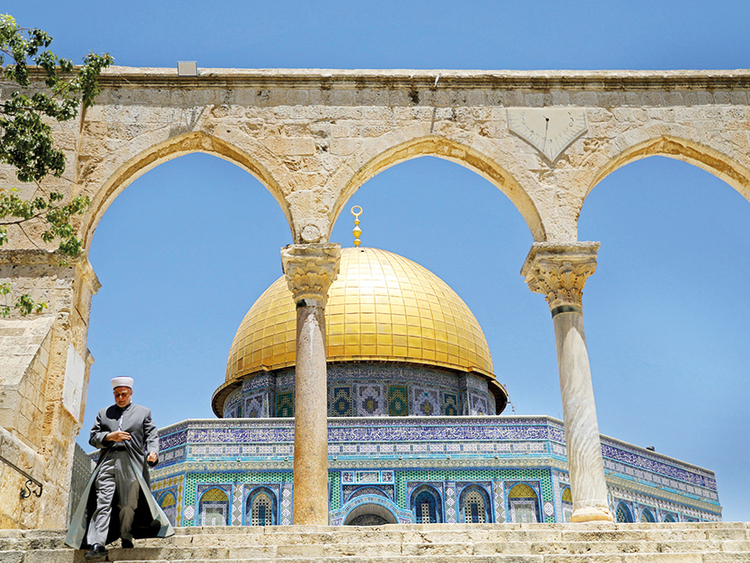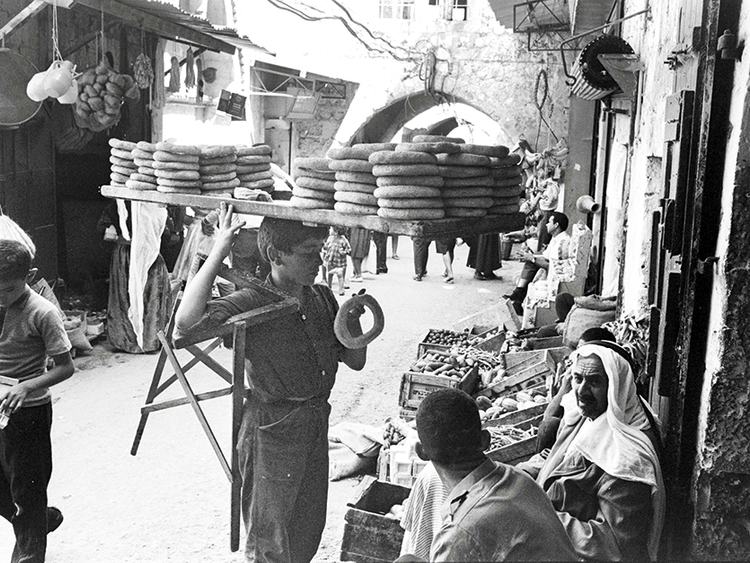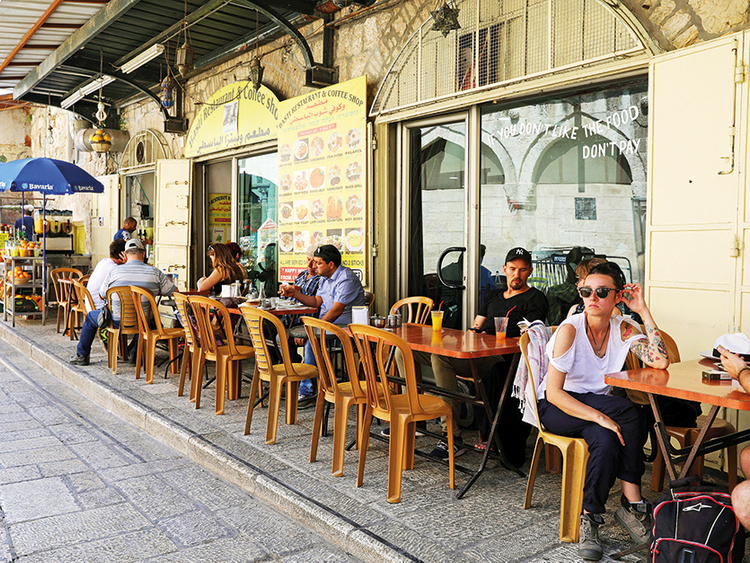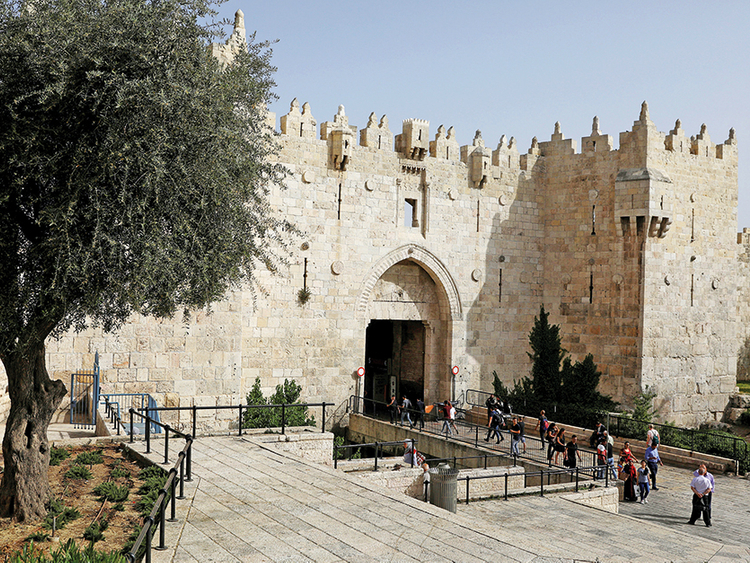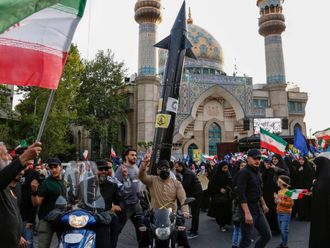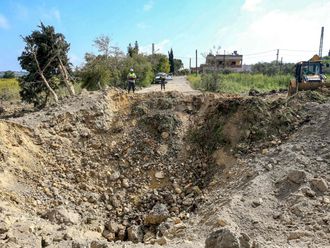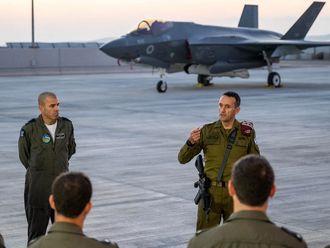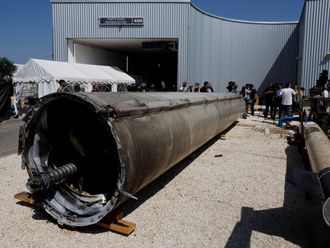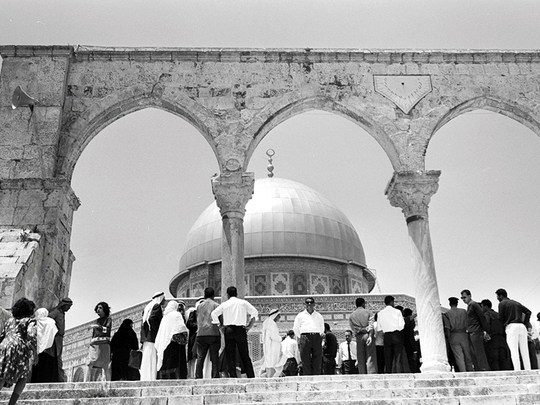
Dubai: On June 5, 1967, Israel launched a devastating pre-emptive attack on East Jerusalem and the West Bank, as well as the Sinai and the Golan Heights.
Within in days it had illegally seized these territories and by June 27 it had adopted a law extending its own laws and administration to the occupied Palestinian Territories, including East Jerusalem where it unilaterally extended the municipal borders of West Jerusalem to cover the newly occupied East Jerusalem.
Even though Israel’s founding fathers never claimed East Jerusalem, the city was annexed by Israel in 1980 under Prime Minister Menachem Begin, an act internationally condemned and declared invalid by the United Nations.
Within a few days of conquering the Old City the Israelis had bulldozed the Maghrebi (Moroccan) Quarter to the ground and later used the space to create the huge open plaza that now exists in front of the Al Buraq Wall, (Jews call it the Western Wall), and build the new Jewish Quarter with its modern synagogues and hostels for Jewish pilgrims.
But this open brutality was only part of the way that the Israeli occupiers have extended their authority over the Old City through the decades. They have worked hard to drive out the city’s Palestinian inhabitants, and erode the Palestinians’ position in occupied Jerusalem.
The status of Jerusalem is among the most sensitive issues of the Israeli-Palestinian conflict.
Israel sees all of Jerusalem as its undivided capital, while the Palestinians view East Jerusalem as the capital of their future state.
US President Donald Trump sparked outrage during his presidential campaign when he floated the idea of moving the US embassy from Tel Aviv to Occupied Jerusalem.
The White House later backtracked on the move, saying it would be left to discuss at a later time.
But what is clear is that Israel has been implementing policies to change the facts on the ground — particularly in Jerusalem.
Just last week, Israeli security sources revealed that Palestinians living in Shuafat Refugee Camp, in Occupied East Jerusalem, and the town of Kofr Aqab, in the north of the city, will no longer be considered as falling within Jerusalem’s municipal boundaries.
The announcement confirms long-held Palestinian suspicions of a systematic Israeli plan to ensure a Jewish majority in the holy city.
“We have known about Israeli plans for years but the world powers ignore our cries. It is only natural their actions will provoke us to move to defend our land, especially Jerusalem’s which is Islam’s third holiest site,” Shaker Shadid, a Palestinian resident of Occupied Jerusalem told Gulf News.
He says Israel has choked Palestinians living in Occupied Jerusalem, preventing them from building or enlarging their houses, imposing high taxes on them and restricting them from state services, even though they hold Israeli citizenship.
A mix of Jews and Paletinians stand at Al Buraq Wall adjacent to Al Haram Al Sharif in Jerusalem’s Old City on September 1, 1967 (left). Right: Today Palestinians are not allowed as the the site has been renamed the ‘Western Wall’ where only Jews can pray. Reuters
An uptick in Jewish raids on Al Haram Al Sharif has sparked nearly two years of growing violence in the Palestinian territories.
Israel has been imposing restrictions on Palestinians from accessing the Muslim site — the third holiest in Islam — to pave the way for more colonists to raid the holy shrine and perform their Jewish and Talmudic rituals inside the holy site.
Under a status quo agreement, Jews may visit Al Haram Al Sharif, but may not perform religious rituals there.
Palestinians say that Israel has been conducting a systematic campaign against Palestinians, specifically in Occupied Jerusalem.
Israel has also banned Palestinians from burying their dead in specific parts of Bab Al Rahma cemetery, a resting place for many of the city’s historic figures.
Israel has also removed Arabic signage from many streets in Occupied Jerusalem replacing them instead with Hebrew signs in an attempt to Judaise the city and erase any Palestinian or Muslim identity.
Israeli infrastructure projects in East Jerusalem and the occupied West Bank draw harsh criticism from the Palestinians and many in the international community.
In 2015, France-based utility giant Suez Environnement said that, because of political sensitivities, it had decided not to take part in the project.
Another example of such controversy occurred last month, when Israeli newspaper Haaretz reported that European diplomats declined to attend a tour of new Israeli rail tunnels because part of the line crosses the Occupied West Bank.
Israeli colonies in the West Bank and East Jerusalem are seen as illegal under international law, and are a major stumbling blocks to peace as they are built on land the Palestinians see as part of their future state.
Despite that, Israel continues to build colonies, routinely demolishes Palestinian homes and carries out extrajudicial killings of Palestinians with little or no reproachment from Washington.
The US dedicates nearly one-fifth of its entire US foreign aid budget to Israel, which Palestinians point to as proof that Washington is not an impartial broker.
Israel receives about $3b in direct foreign assistance each year amounting to nearly $10.2m (Dh37.4 million) each day.
A city like no other
Jerusalem is a unique city where three religions come together. Muslims venerate Al Haram Al Sharif which is the mosque precinct containing both Al Aqsa Mosque and the Dome of the Rock, which make up Islam’s third most holy site after Makkah and Madinah. Very early Muslims were directed by the Prophet Mohammad, PBUH, to pray towards Al Aqsa and only later changed the direction of prayer towards Makkah.
Because the site of the Jewish biblical temple would have been somewhere on Al Haram Al Sharif, Jews for centuries have refused to tread on the ground and a status quo was preserved after occupation, but extremist Jews have recently connived with the Israeli security forces to regularly storm the barriers and march around the Muslim precinct, while threatening to end Muslim control of the holy site.
The only genuine surviving part of the Jewish temple is the Al Buraq Wall, called the Western Wall or Kotel by the Jews.
The huge stones are a holy and venerated site for all Jews, and have been a site of Jewish pilgrimage for centuries.
They form the base of the massive foundations of Al Haram Al Sharif but neither site need intrude on the other and they have coexisted for centuries until the Israelis perverted the situation.
Jerusalem is also where Jesus was crucified by the Romans, and the Church of the Holy Sepulchre covers the sites of both Jesus’ crucifixion and grave.
Several Christian sects share the management of the church in unhappy harmony, and host millions of pilgrims every year.


